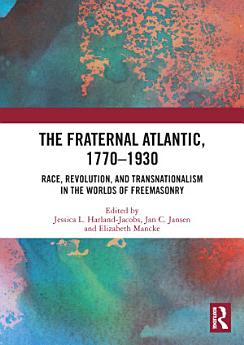The Fraternal Atlantic, 1770–1930: Race, Revolution, and Transnationalism in the Worlds of Freemasonry
About this ebook
Fraternalism was a key strategy for people swept up in the dislocations of imperialism, large-scale migrations, and the socio-political upheavals of revolution. Ranging from confraternities to Masonic lodges to friendly societies, fraternal organizations offered people opportunities to forge linkages across diverse and widely separated parts of the world. Using six case studies, the contributors to this volume address multiple themes of fraternal organizations: their role in revolutionary movements; their intersections with the conflictive histories of racism, slavery, and anti-slavery; their appeal for diasporic groups throughout the Atlantic world, such as revolutionary refugees, European immigrants in North America, and members of the Jewish diaspora; and the limits of fraternal "brothering" in addressing the challenges of modernity.
The chapters in this book were originally published as a special issue of Atlantic Studies: Global Currents.
About the author
Jessica L. Harland-Jacobs is Associate Professor of History at the University of Florida, USA; her research focuses on the British Empire and comparative imperialism.
Jan C. Jansen is a professor of global history at the University of Duisburg-Essen, Germany. His research interests include comparative imperial history, refugee history, and the history of the Atlantic and Mediterranean worlds.
Elizabeth Mancke studies the geopolitical impact of European expansion on systems of governance. She is a Canada Research Chair in Atlantic Canada Studies at the University of New Brunswick, Canada.





